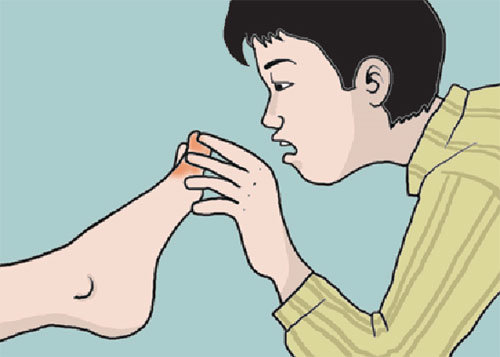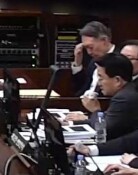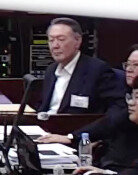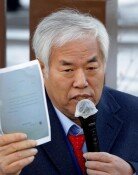Nice foot
Nice foot
Posted March. 27, 2019 07:35,
Updated March. 27, 2019 07:35

The son printed the image of his father, whom he loved, suffering from a toe gout as a complete human being. His father, who had to hold up his foot when he went to use the bathroom and had to leave his foot outside as even the thin sheet would pain him, hurt the son. The son touched his father’s left big toe that was still swollen up in red and said, “Nice foot, are you okay? You are such a nice foot!” It was not towards his father but to the toe. Even after his father recovered, the son would hold his father’s left foot and say, “Nice foot, nice foot, are you okay? How have you been?”
The son was born with two brains and had to undergo a surgery to remove one of them. He was talking to the foot because he remained as a child forever even though he aged. The son’s thoughts toward his father are touching yet at the same time sad as this situation is a result of incomplete communication.
This is a story from Nobel Prize for Literature winner Kenzaburo Oe’s novel “Rouse Up O Young Men of the New Age!” This is, however, not a fiction but a record of the truth. This is a story of the writer’s eldest son. The fact that Oe’s son, who suffers severe disability and epilepsy, appears in many of his novels is clear evidence that he was obsessed with his son. Great ethical novels, however, were created from such compulsion. The son drove his father into compulsion and ultimately led him towards the world of rational faculty of the mind and ethics.
Oe’s affection and interest towards others who were driven out of the world and history was a continuation of his interest towards his son. Maybe that was the reason why Oe did not turn away from the pain of neighboring countries that were ravaged by Japanese imperialism. He did not look away from the pain of Okinawa, which was victimized by mainland Japan. Japan, a country that is engrossed in erasing or justifying its history of colonialism rather than consoling the pain of its neighbors and apologizing, was able to avoid ethical failure because of people who are sensitive about other people’s wounds and pain like Oe.







